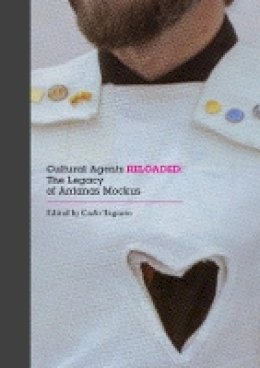
Stock image for illustration purposes only - book cover, edition or condition may vary.
Cultural Agents Reloaded: The Legacy of Antanas Mockus
Carlo Tognato (Ed.)
€ 56.86
FREE Delivery in Ireland
Description for Cultural Agents Reloaded: The Legacy of Antanas Mockus
paperback. Cultural Agents Reloaded reflects on the accomplishments and failures of Antanas Mockus, twice Mayor of Bogota. His example motivates us to sharpen our understanding of what cultural agency is in the present day by bringing into focus the challenges public humanities face when they travel South and struggle to become genuinely global." Series: Focus on Latin American Art and Agency. Num Pages: 380 pages. BIC Classification: 1KLSC; 3JM; BGH; JPR. Category: (G) General (US: Trade). .
Cultural Agents Reloaded: The Legacy of Antanas Mockus systematically reflects on the practices and legacy of one exceptional cultural agent, Antanas Mockus, twice Mayor of Bogotá, Colombia. His accomplishments bear witness to the potential of creative, symbolic practices as a trigger for social change. His failures, in turn, demonstrate what happens when cultural agency and epistemic legitimacy take divergent paths. Mockus’s example motivates us to further revise and sharpen our understanding of what cultural agency is in the present day by bringing into focus some of the most formidable challenges that public humanities face when they travel South and struggle to become genuinely global.
Product Details
Format
Paperback
Publication date
2018
Publisher
The Cultural Agents Initiative at Harvard University United States
Number of pages
380
Condition
New
Series
Focus on Latin American Art and Agency
Number of Pages
646
Place of Publication
MA, United States
ISBN
9780674088559
SKU
V9780674088559
Shipping Time
Usually ships in 7 to 11 working days
Ref
99-1
About Carlo Tognato (Ed.)
Carlo Tognato is Associate Professor of Sociology at the Universidad Nacional de Colombia.
Reviews for Cultural Agents Reloaded: The Legacy of Antanas Mockus
Antanas Mockus, academic, mathematician, and philosopher, twice elected as mayor of Bogotá without funds or a party, belongs to no stereotype of right or left or populist. His administrations’ campaigns of Cultura Ciudadana (Civic Culture) surprised and often delighted through their use of symbolism, theater, and sheer playfulness. At the same time they were based on thorough theoretical thinking and, as were all aspects of his administrations, on scrupulous execution and profound ethical convictions. Carlo Tognato has assembled here a varied and consistently stimulating collection of assessments and interpretations, together with interviews with a number of Mockus’s collaborators, including an indispensable contribution by the former mayor himself. Often the chapters depart as interestingly from conventional political analysis as Mockus’s methods departed from conventional politics. They are accompanied by an extended photographic essay, which is an essential and welcome novelty. Opinions differ about how much was dependent on Antanas Mockus’s personality; he has the rare and perhaps untheorizable gift of making hard lives a little bit happier. But this excellent book is itself evidence of continuing interest in this remarkable philosopher and politician.
Malcolm Deas, St Antony’s College, University of Oxford To transform a social equilibrium requires changing institutions, rules, social norms, expectations, beliefs, and interests. It’s hard to do, but it happened in Bogotá in the 1990s. This book deconstructs how it was precipitated and evolved under the innovative strategies of Antanas Mockus. A remarkable experience with profound lessons for social science.
James Robinson, University of Chicago
Malcolm Deas, St Antony’s College, University of Oxford To transform a social equilibrium requires changing institutions, rules, social norms, expectations, beliefs, and interests. It’s hard to do, but it happened in Bogotá in the 1990s. This book deconstructs how it was precipitated and evolved under the innovative strategies of Antanas Mockus. A remarkable experience with profound lessons for social science.
James Robinson, University of Chicago
